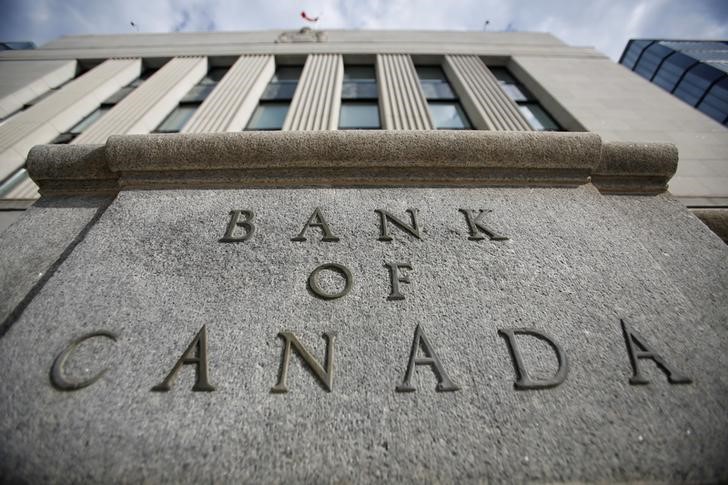By Geoffrey Smith
Investing.com -- The Bank of Canada shocked financial markets on Thursday, raising its key rate by a full percentage point as it scrambles to bring down runaway inflation.
The BoC said the target rate for overnight funds would be raised to 2.5% from 1.5%, saying it feared that inflation was set to remain higher for longer than previously expected. This raises the risk that those who set wages and prices will bake higher inflation expectations into their behavior, making the start of a wage-price spiral more likely.
"With the economy clearly in excess demand, inflation high and broadening, and more businesses and consumers expecting high inflation to persist for longer, the Governing Council decided to front-load the path to higher interest rates by raising the policy rate by 100 basis points today," the Bank said in its statement.
Economists had expected a raise of no more than 75 basis points.
The Bank's move comes only a couple of hours after another nasty upside surprise to inflation in the U.S., where the consumer price index rose 9.1% on the year through June. While Canada's inflation rate is currently lower, at 7.7%, the Bank said it expects it to stay around 8% for the next few months.
"While global factors such as the war in Ukraine and ongoing supply disruptions have been the biggest drivers, domestic price pressures from excess demand are becoming more prominent," it warned. "More than half of the components that make up the CPI are now rising by more than 5%."
The loonie, which had lost nearly a cent against the U.S. dollar on the back of the inflation news earlier, reversed its losses to trade at C$1.2991, a gain of some 0.2% on the day.
The Bank said it expects its own actions, coupled with a reduction in external price pressures, to bring inflation down to around 3% by the end of next year, and to the Bank's target level of 2% by the end of 2024.
The BoC is the third major advanced economy central bank to raise interest rates in the last 24 hours. Earlier on Wednesday, the Bank of Korea and the Reserve Bank of New Zealand had both raised their respective key rates by 50 basis points each.
